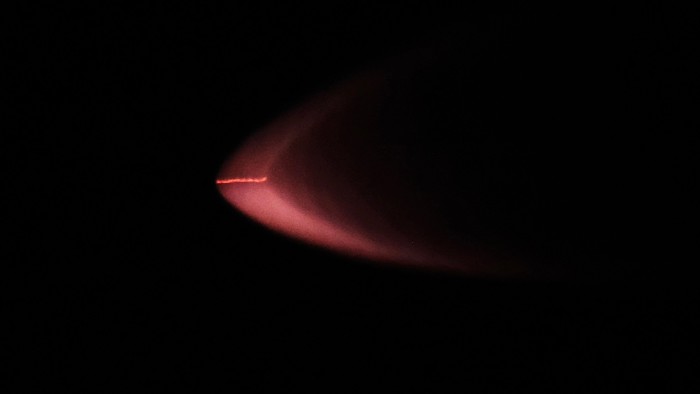Unlock the Editor’s Digest for free
Roula Khalaf, Editor of the FT, selects her favourite stories in this weekly newsletter.
We’re living in the age of another ambitious space race, with Bezos, Branson and Musk wielding unlimited funds to underwrite their dazzling goals of space tourism and neocolonial outposts. Yet for readers, the more gripping space mission is happening on the page.
Novelists are notoriously underfunded as a tribe — but they have unlimited imagination. And their achievements have given us endless pleasure and fodder for thought.
The billionaires’ version of reaching for the stars often has their plans go up in a giant fireball — the fate that overtook Elon Musk’s Starship spacecraft in Texas this month. Writers, conversely, are far better at sparking the imagination without leaving a trail of wreckage behind them. From Samantha Harvey’s 2024 Booker-winner Orbital, a slender and profound meditation on the fragile beauty of our Earth, to Taylor Jenkins Reid’s crisply nostalgic Atmosphere, which reimagines the first generation of American women in space in the 1980s, literary and popular novelists are looking up and outwards.
The gift of great writers is that they work in isolation from one another, often on different continents, but respond to the same deep, unconscious instincts. The zeitgeist is marked by a profound yearning for salvation and transformation, in response to the starkly real, existential anxieties of a decade scarred by pandemics, genocide and fresh outbreaks of war, the looming threat of AI and climate disasters. But how we respond to crises, what we choose to interrogate, love, or keep faith with, is what makes us such an interesting species.
In 2020, a month before the pandemic closed in, Sarah Perry bought a telescope and trained it on the Norwich skies. She began to write a novel about two Essex friends, a vanished 19th-century astronomer, the swift arrival and departure of comets or love, and what it means to look to the skies for wonder or enlightenment. Enlightenment came out in 2024; in an interview with the Fringe Review, Perry said, “We are visited constantly by the beauty of the universe, and we can transfer that to others.”
Similarly, Harvey had footage from the International Space Station playing on her desktop as she wrote Orbital: “I wanted to write a celebration of the Earth’s beauty, but with a sense of sorrow or a pang of loss because of what we’re doing to it,” she has said. “It was enormous consolation to me to be able to go to space every day, virtually in my imagination.”
Jenkins Reid has written several popular bestsellers, from The Seven Husbands of Evelyn Hugo to Daisy Jones and the Six, often focusing on women pioneers in fields ranging from rock music to space exploration. She writes in Atmosphere, “To look up at the nighttime sky is to become a part of a long line of people throughout human history who looked above at that same set of stars. It is to witness time unfolding.”
This is classic SFF (science fiction and fantasy) territory, and literary novelists such as Martin MacInnes have acknowledged their debt to the genre. His 2023 novel In Ascension follows a young microbiologist, Leigh, from the depths of the ocean to the sprawl of the cosmos. In an interview with Literary Hub, MacInnes questioned the “snobbery” about science fiction, citing SFF authors from JG Ballard to Ursula K Le Guin alongside Virginia Woolf and Clarice Spector as inspirations.
Many of these writers nudge their readers to do more than look up at the stars as a beautiful backdrop, as though spinning galaxies are no more than a life-size screensaver. For Pip Adam, the New Zealand writer whose fourth novel Audition (2023) is newly published in the US this month, space and spaceships can become a metaphor for confinement. Three giants, outgrowing their given limits, are sent wheeling through space in the good ship Audition, and Adam makes you feel their helplessness and suffocation. “I was interested in what happens when someone grows too big for the space society allocates them,” she has written. The spaceship Audition, with its focus on conversation, sound and echoes, was based on Syria’s notorious Saydnaya prison. Adam made me reconsider whether that old line, “In space no one can hear you scream,” was really all that terrifying; perhaps it’s worse when your fellow passengers can hear you, loud and clear.
Space transforms in the hands of the keenest writers: it becomes a refuge and also a place of epic loneliness, a promise of timeless beauty, a prison, a portal, a place of terrors so far away from Earth, but also a place of untold possibilities. The aims of billionaires are bound by practical constraints. Novelists can boldly go where no billionaire has gone; their dreams have no final frontier.
Join our online book group on Facebook at FT Books Café and follow FT Weekend on Instagram, Bluesky and X
